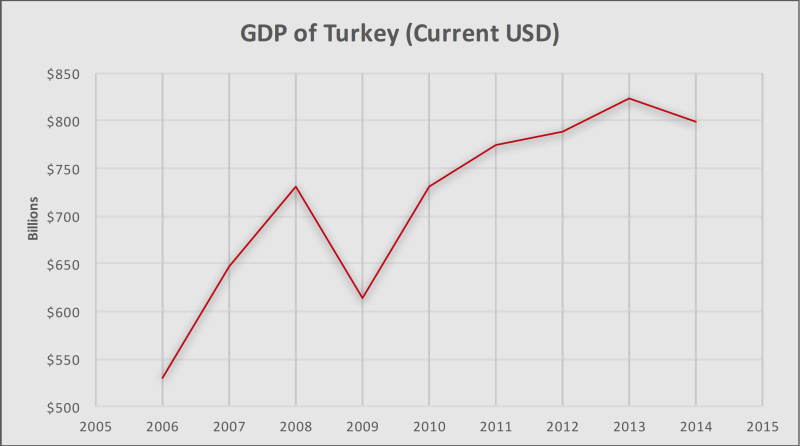Turkey is known as the leading producer of agricultural products such as textiles, motor vehicles, transportation equipment, construction materials, consumer electronics, and home appliances. Turkey has a mixed economy with a combination of centralized economic planning and government regulation. “Turkey’s economic freedom score is 64.4, making it’s economy the 71st freest in the 2020 Index. Its overall score has decreased by 0.2 points due to a lower fiscal health score” (The Heritage Foundation Team, 2020). Turkey ranks 36th among Europe’s 45 countries and its overall ranking is just below the regional average and above the world average. For more than a decade the Turkish economy was moderately stable. GDP growth was stable until 2018 when a crisis in the currency and debt forced the economy into recession. It has undergone rapid industrialization, positioned itself as a manufacturer of diversified products and services, and secured an ever-expanding presence in the global economy as a trading partner.
Turkey has been trading partners with the United States and has grown stronger economic ties. “Since 2003, U.S. goods exported to Turkey have risen 316 percent, while U.S. goods imported from Turkey have risen 76 percent” (THO, 2020). Since 2007, the U.S. companies in Turkey have risen to 50 percent. The U.S. and Turkey have worked together to increase bilateral trade and investment. “Even more importantly, Turkey’s own consumer base and its connections to business opportunities through its 17 Free Trade Agreements and 82 Bilateral Investment Treaties with nations throughout Central Asia, the Caucasus, the Middle East, and Africa make it an attractive partner for U.S. businesses” (THO, 2020). The benefits in Free Trade Agreements are having a national income, social welfare, and competitiveness of partner countries in the global economy, establishing a strong business climate that increases investments. Many U.S. companies which are General Electric, Amgen, 3M, Sikorsky Aircraft, Pfizer, Intel, Coca-Cola, UPS, Cargill, Microsoft, Citibank, and Ford have been operating in Turkey.
Page Author: Kaynait Zafar



